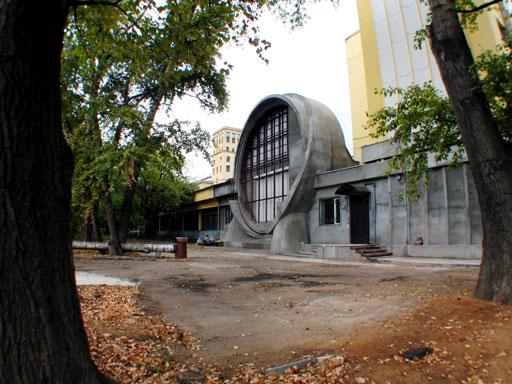Sciences of “Dune”: An Introduction (LA Review of Books)
A symposium on Dune’s medicine, ethnography, eugenics and others.
Why Do We Love the Brutality of “Grimdark” Fantasy? (LitHub)
Have neither read ASoIaF nor watched GoT, but I will leave the root of word “grimdark” here: In the grim darkness of far future there is only war.
On Tolkien and Orwell (Darcy Moore)
More common points than just “being peculiarly English authors with evergreen book sales“.
Ursula K. Le Guin’s biography gets a publisher and a release date (Oregon Live)
Just finished The Dispossessed, the 1974 SF novel by Le Guin. A worthy, humane read, definitely. Apart from the beautiful prose, the setting is compelling. Two planets: Urras, complete with states, money and war, and Anarres, a former mining outpost turned to colony by settlers from Urras. Governments of Urras offered to people adhering to the teachings of a semi-legendary woman (“Laia Asieo Odo”) the colony, so that they could do their thing without disrupting “civil order”. Le Guin explains:
Odonianism is anarchism. Not the bomb-in-the-pocket stuff, which is terrorism, whatever name it tries to dignify itself with; not the social-Darwinist economic “libertarianism” of the far right; but anarchism as prefigured in early Taoist thought, and expounded by Shelley and Kropotkin, Goldman and Goodman. Anarchism’s principal target is the authoritarian State (capitalist or socialist); its principal moral-practical theme is cooperation (solidarity, mutual aid). It is the most idealistic, and to me the most interesting, of all political theories.
Source
The book follows a scientist from the anarchist planet who travels to the old world. The chapters alternate between his interactions there and flashbacks from his homeland. The writer paints the capitalist state, that hosts the traveler, as funky, but sinister (she does not spare a neighboring socialist one, either), while she treats the anarchist world more generously. It even gives it some, let’s say, additional leeway, contrasting its arid, hostile landscape with the lush environment of Urras. The dichotomy is furthered by guarantees of isolation: The two worlds only do some limited communications and trade, no traveling in-between.
The outline of life in Anarres was the most interesting aspect, to me. Trust, mutuality and personal freedom are the basic elements in this anarchist society, which prides itself against those competitive, “archists”, “propertarians” of Urras. They also fear and loathe them (acknowledging that Anarres is practically defenseless at the face of tactical armies), and also need to trade with them ores for necessary goods.
The constructed language of Anarres expresses the core beliefs, for example, it uses “central” instead of “higher”, to denote significance in the absence of hierarchies. The word for “work” is the same as “play” (or was it “joy”?), and the really unpleasant tasks are shared on a rotating basis. This means that specialized and unspecialized individuals alike spend some considerable time laboring for society’s wellbeing. Professions are conducted through syndicates, which form and dissolve voluntarily. Individuals move freely across the planet’s communities. There is a unit that coordinates production, work postings and resources allocation (a Gosplan-lite, if you take away the imposing building and that 5-year fetish). It also has powers like emergency work postings in times of need (the closest thing to quasi-official “compulsion” in a society without the notion of it). Serial slackers deserve food and shelter, like anyone else, but at some point will probably get their asses kicked by their peers and/ or pressed to fuck-off to another location.

Each individual is responsible to the others. This simple standard of meeting social expectations, benevolent as it is at first, in the novel is seen as gradually taking the shape of an “orthodoxy” placed, and finally encroaching, upon individual freedom. The writer is also keen to pinpoint the effects of creeping hierarchies, even in organizations open to participation. For example, an anarchist argues that the coordination unit has assumed the bureaucratic attitude (“no to everything”). Other institutions, like research centers, are seen festering with dug-in cliques and “seniors”, that fend-off outsiders and boss around among supposedly equals. I think that anyone who has experienced office life can relate to this.
There is more, about self, relations, gender (not The Left Hand of Darkness – not read, or Tehanu – read, level), constraints and science (the last I cannot judge). A final note, the people of Anarres describe themselves as anarchists, Odonians and, of course, libertarians.